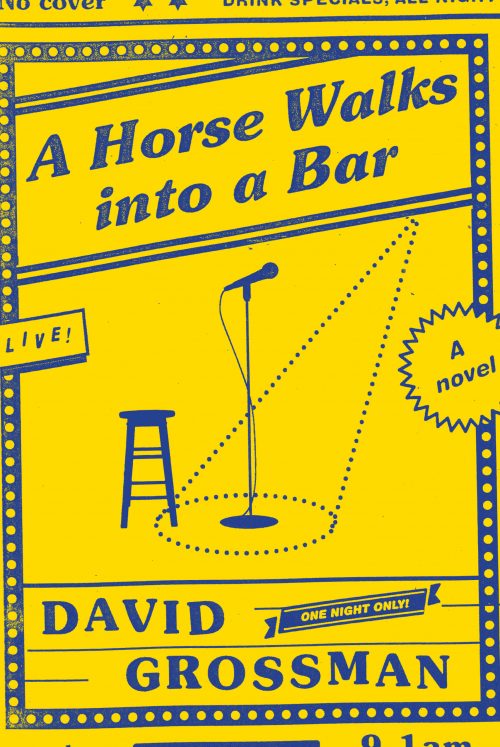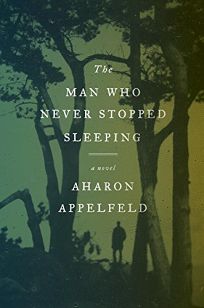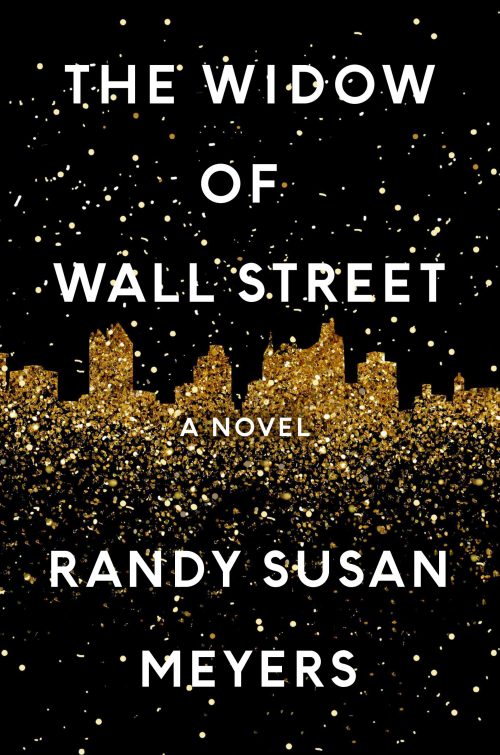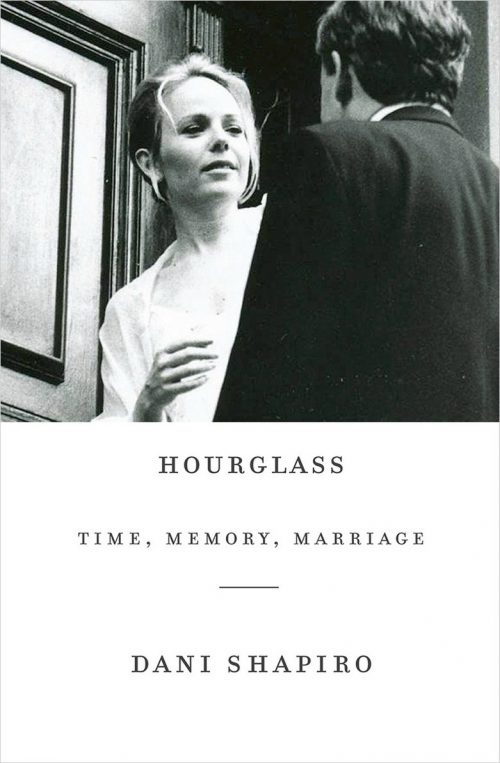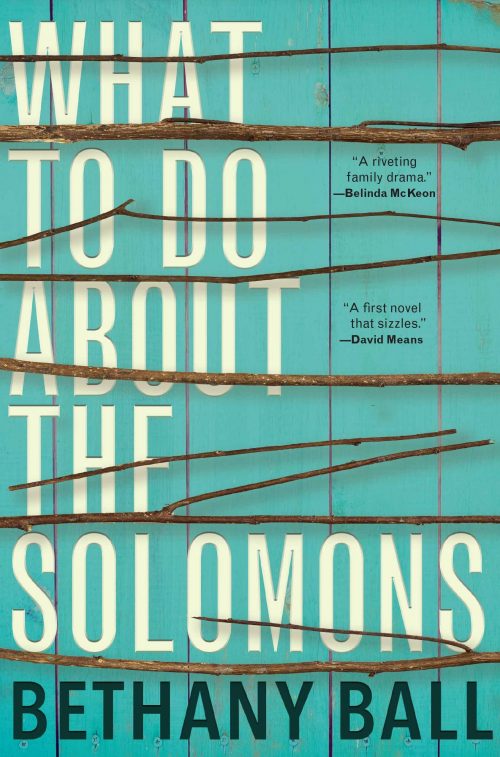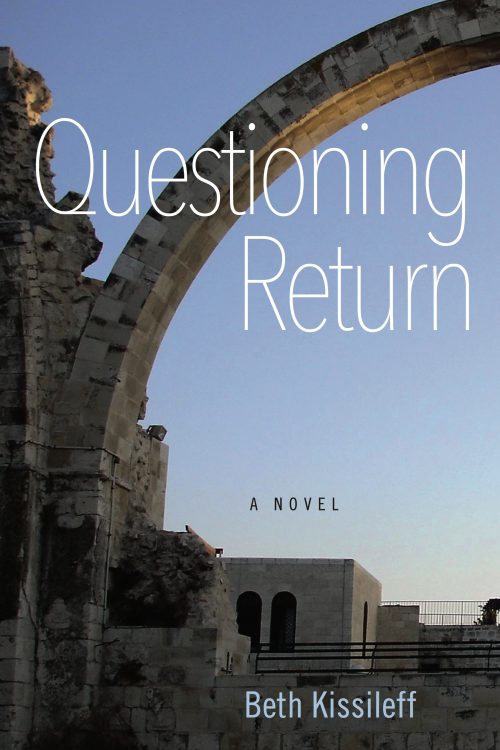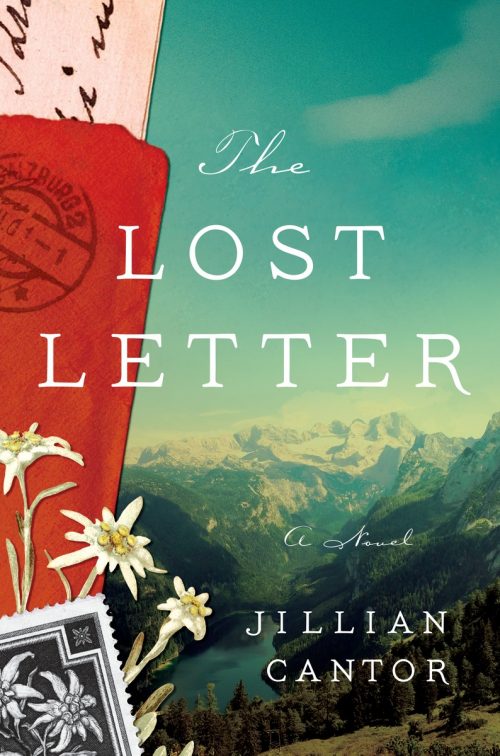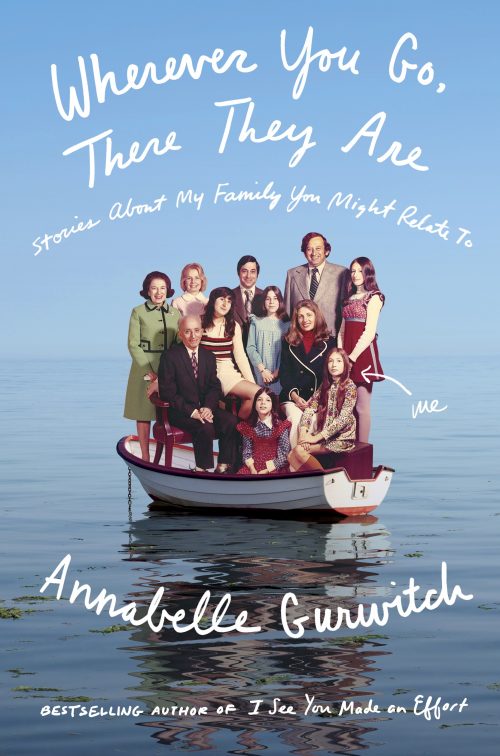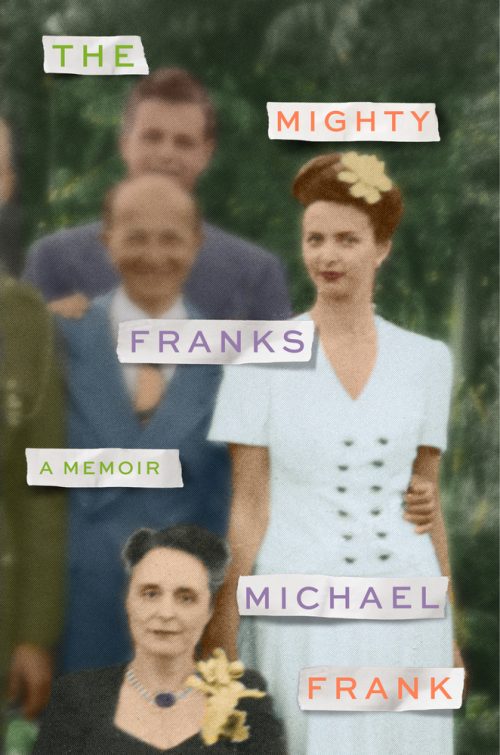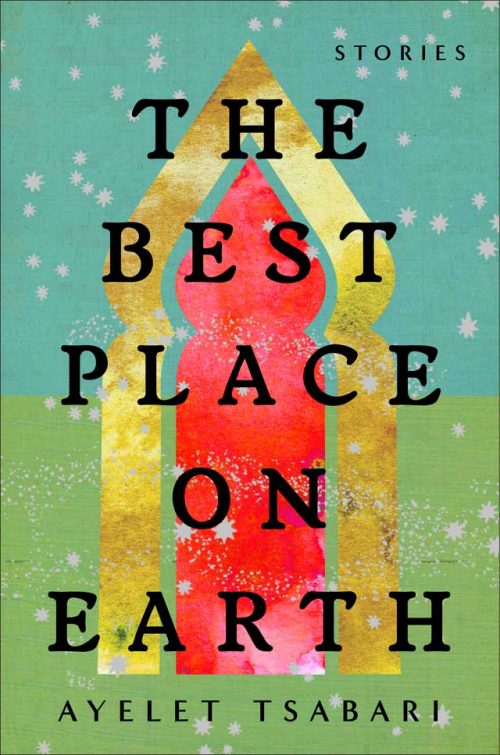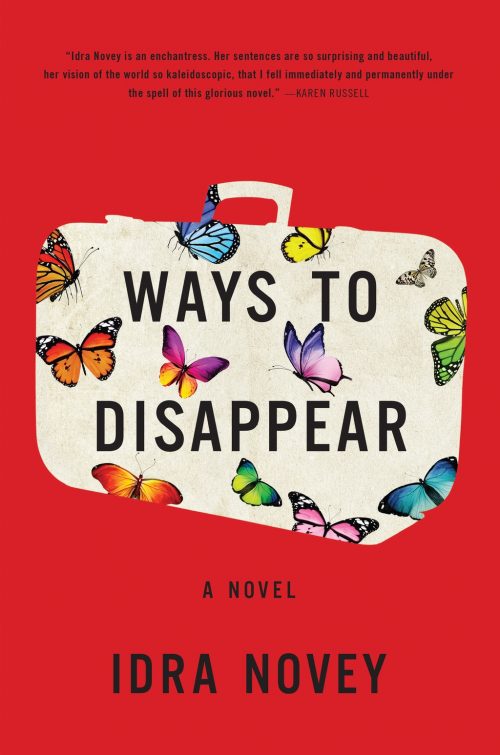There is something about the summer light that transforms reading from a mere diversion to flat-out escapism. The Israeli and American writers featured here deliver on that promise, gripping you with their fiction, memoirs and essays as they take you from 1938 Austria to Mizrahi housing projects in contemporary Israel to Brazil. While reading these works, you will encounter characters who question their faith, their marriages and even their sanity. In short, these books will not only broaden your world, but will also delight you as you read your way through the summer.
“A Horse Walks Into a Bar: A Novel” by David Grossman
David Grossman’s short, intense novel focuses on comic Dov “Dovaleh” Greenstein and his ribald standup act. In his 50s, Dovaleh is dealing with a messy divorce, financial woes and prostate cancer, all of which have a place in his comedy.
This fictitious story is a departure for Grossman. Well-known for integrating his liberal politics into his work, he has often been described as Israel’s conscience. But his willingness to experiment as a writer has earned him this year’s Man Booker International Prize for the best fiction in translation. He shares that honor with his translator, Jessica Cohen, who has done the impossible by brilliantly conveying Dovelah’s jokes and barbs into English.
Grossman is the first Israeli writer to win the Man Booker. Nick Barley, the chair of judges and director of the Edinburgh International Book Festival, asserted, “David Grossman has attempted an ambitious high-wire act of a novel, and he’s pulled it off spectacularly.”
“The Man Who Never Stopped Sleeping: A Novel” by Aharon Appelfeld
The author of more than 40 books of fiction, almost half of which have been translated into English, Aharon Appelfeld almost always draws on his extraordinary grit and determination as a child survivor of the Holocaust.
“The Man Who Never Stopped Sleeping” opens in a displaced persons camp in Italy. The narcoleptic protagonist, a boy named Erwin—Appelfeld’s actual birth name—has been in a deep slumber for most of the journey to Naples. In a long, continuous refrain, his fellow refugees tell him how they carried him across war-torn Europe, placing him on assorted trains and trucks. From the beginning, there is a divide between this group of damaged souls and the young men and women who have been tapped to be “New Jews.”
Erwin finds himself thrown into the shifting alliances of nation-building. In his confusion, he retreats into dreams that transport him to his prewar childhood. In his waking life, he becomes Aharon. The name bestows Erwin with a new identity on a kibbutz in northern Israel, where he is gravely wounded in a midnight raid. After several unsuccessful operations, Aharon is transferred to a convalescent home. He uses the long break from the physical demands of kibbutz life for intellectual pursuits, forging another path to becoming a “New Jew.”
“The Widow of Wall Street: A Novel” by Randy Susan Meyers
In her fifth novel, Boston literary mainstay Randy Susan Meyers explores a troubled marriage that echoes Bernie and Ruth Madoff’s relationship. From the first standout line—“Phoebe never hated her husband more than when she visited him in prison”—Meyers sets up a premise she effectively probes in this compulsively readable book.
The beating heart of Meyers’s story is Phoebe Pierce’s role in her husband Jake’s Ponzi scheme. When Jake is finally imprisoned, Phoebe faces an impossible choice: her children will refuse to see her if she remains at Jake’s side, but abandoning her high school sweetheart feels too cruel.
In a recent interview, Meyers said: “Writing ‘The Widow of Wall Street’ allowed me to explore my fascination with how criminal scandal affects those closest to the perpetrator—and how they applied to the family of Bernie and Ruth Madoff—by inhabiting the point of view of both my main characters, caught in a similar crime.”
“Hourglass: Time, Memory, Marriage” by Dani Shapiro
Marriage comes under different scrutiny in “Hourglass: Time, Memory, Marriage.” Dani Shapiro’s retrospective, deeply meditative account of her 18-year marriage to her husband, whom she calls M. Told in poetic fragments, shuffles chronology as if it were a deck of cards. It also deftly intersperses entries from the journal Shapiro kept on her honeymoon with quotes from various writers and thinkers, including her mentor Grace Paley. Part of Shapiro’s genius lies in her portrayal of the fissures that develop in a long marriage and how they are an inevitable, even touching, part of a love story.
“What To Do About the Solomons” by Bethany Ball
Books that begin with a family tree often signal that familial relationships will be extensive and even convoluted—and so they are with the three generations of the Solomon family, who drive Bethany Ball’s accomplished debut novel.
Family patriarch Yakov Solomon is “a real sabra” who counts Yitzhak Rabin and Ehud Barak among his friends. Vivienne grudgingly marries Yakov after her non-Jewish boyfriend refused to follow her to Palestine. Yakov, who is a founding member of a kibbutz in the Jordan Valley, has branched out and built a highly successful construction company.
Yakov and Vivienne’s five children are very complicated: Marc moves to Los Angeles, where he becomes mired in a money-laundering scandal. Shira abandons her 11-year-old son in Jerusalem to pursue her career and travel with a friend. Keren, the youngest Solomon daughter, marries Guy, who takes it upon himself to chase away birds that eat the kibbutz crops. But like the Solomon children, the birds keep returning home for nourishment.
“Questioning Return: A Novel” by Beth Kissileff
Wendy Goldberg is a Ph.D. candidate in the department of religion at Princeton University. The reader first meets her on her way to Israel, Fulbright Scholarship in hand, to research the subject of her dissertation: young Jews who have become observant and moved to Israel. Going into the project, Wendy knows little about her own Judaism and is determined to remain an aloof academic during her time in Jerusalem.
But Wendy’s defenses begin to weaken almost immediately on the plane. She has a conversation with a professor in her department that causes her to dig deep and examine her own doubts and beliefs.
Life in Jerusalem animates this novel of ideas, which Kissileff perfectly captures in all its gorgeous complexity. There is nothing quite like Shabbat in Jerusalem, and Kissileff shows Wendy’s unfolding appreciation of the city’s unique and even holy atmosphere. In the end, Wendy comes to view her research subjects in a new light, pondering the underlying question: Is there room for doubt in a religious life?
“The Lost Letter: A Novel” by Jillian Cantor
Jillian Cantor is a prodigious student of history. Her two previous historical novels, a fictional portrait of Ethel Rosenberg and a reimagining of Anne Frank’s older sister’s life had she survived the Holocaust, seamlessly blended imagination and verisimilitude. In her latest book, Cantor was inspired by resistance workers who risked their lives during World War II.
Frederick Faber is a Jew who engraves stamps and documents in Vienna. After Frederick disappears during Kristallnacht, his non-Jewish apprentice, Kristoff, takes up his mentor’s mantle in ways he never conceived of. While Kristoff is forced to engrave stamps for the Germans, he uses his skills to forge papers to help Jews escape the Nazis with the help of Frederick’s daughter, Elena.
Fifty years later in Los Angeles, Katie Nelson comes across her father’s stamp collection after he has moved to a nursing home. Hoping to find something of value, Katie enlists the help of Benjamin Grossman, a philatelist who finds an unopened letter that bears a unique stamp and is addressed to Elena, whom Katie and Benjamin track down in Wales. All of this takes place against the backdrop of the Berlin Wall coming down, a metaphor for family secrets about to crumble. Throughout the novel, Cantor deftly moves between Austria in 1938 and Los Angeles in 1989.
“Wherever You Go, There They Are: Stories About My Family You Might Relate To” by Annabelle Gurwitch
The Polish author Czeslaw Milosz once said, “When a writer is born into a family, that family is finished.”
Gurwitch’s family may not be altogether finished, but under her sharp eye it is exposed in uncomfortable and awkward ways. There is no doubt the actress and comedian is going for laughs in these memoir-esque essays, and she has a lot of good material to mine. But there is also poignancy when her mother frequently locks herself in her room and her Jewish, Alabamian father is involved in yet another shady business deal.
At one point, Gurwitch and family have to move from Alabama to Delaware to live with her irritating cousins. In a later essay, she recounts how she became next-door neighbors with her parents in their Miami Beach retirement community.
“If someone asks what your father does,” warns Gurwitch’s mother, “don’t answer them.” Gurwitch doesn’t heed this advice, which results in a very funny, dysfunctional family chronicle as unique as the family that populates it.
“The Mighty Franks: A Memoir” by Michael Frank
In this fascinating memoir, journalist and critic Michael Frank recalls the bizarre and unhealthy hold his childless Aunt Harriet, known as Hankie, had on his family and him. Hankie was a screenwriter whose credits included “Norma Rae” and “Hud.” In her nephew’s capable hands, she comes across as a “theatrical and mercurial woman who might be the love child of ‘Auntie Mame’ and ‘Mommie Dearest.’”
These eccentric family dynamics keep Frank beholden to his aunt until he’s in college and eventually escapes to Europe, but even distance doesn’t loosen Hankie’s hold on him. She finds him in Paris and insists he meet her in London; his refusal sets off one of her epic tantrums. By the end, Frank comes to understand that Hankie’s “fear fed her anger…. Isn’t fear what is always lying, snakelike, at the bottom of every basketful of rage?”
“The Best Place on Earth: Stories” by Ayelet Tsabari
Ayelet Tsabari’s first collection of short stories showcases the lives of Israel’s Mizrahi Jews. Tsabari, who was born in Israel and grew up among her extended Yemeni family, writes about marginalized characters with a sharp and steady compassionate eye.
In one story, 14-year-old Lily moves from Canada to Israel to live with her Yemeni aunt after her mother dies. She meets Lana, another ninth-grader, who is from Belarus and lives in her apartment complex. The two outsiders are united in their struggles to traverse adolescence and Israeli society. In another story, a Yemeni-Israeli grandmother visits her grandson in Canada and realizes his parents will not have him traditionally circumcised. Tsabari also exposes the uncertain and vulnerable lives of Filipina caregivers, many of whom work illegally in Israel taking care of the elderly.
Tsabari immigrated to Canada in 1998 and writes in English, her second language. “The Best Place on Earth” won the Jewish Book Council’s Sami Rohr Prize for Jewish Literature in 2015 and the 2016 Edward Lewis Wallant Award.
“Ways to Disappear” by Idra Novey
A poet, translator and fiction writer, Idra Novey includes all those genres in her first novel. The result is a much acclaimed, prize-winning book, which recently earned the 2017 Sami Rohr Prize for Jewish Literature.
The precipitating event in “Ways to Disappear” is middle-aged, Brazilian-Jewish novelist Beatriz Yagoda’s disappearance. In an arresting first scene, the celebrated writer climbs into an almond tree, not to be heard from for almost a week. Beatriz’s children, her steadfast publisher and her American translator, Emma, set out to find her.
Solving the mystery of Beatriz’s whereabouts is both suspenseful and darkly humorous. In capturing the cacophony of Brazil, Novey not only mixes up genres, she confronts something complicated and sinister: Beatriz has a gambling addiction and is being hunted by gangsters to pay up her debt, the underpinning premise of the novel’s shifting perspectives. Novey’s structure is built on short, intense chapters interspersed with gossip magazine news bulletins about Beatriz, increasingly desperate emails from Emma’s nebbishy boyfriend in Pittsburgh, and a bevy of vocabulary words Emma uses in her translations that the reader encounters in dictionary form.
Novey’s dedication to craft, both as a translator and novelist, is evident in each sentence. Her prose is not only powerful and evocative; it is magical.
This post has been contributed by a third party. The opinions, facts and any media content are presented solely by the author, and JewishBoston assumes no responsibility for them. Want to add your voice to the conversation? Publish your own post here. MORE



